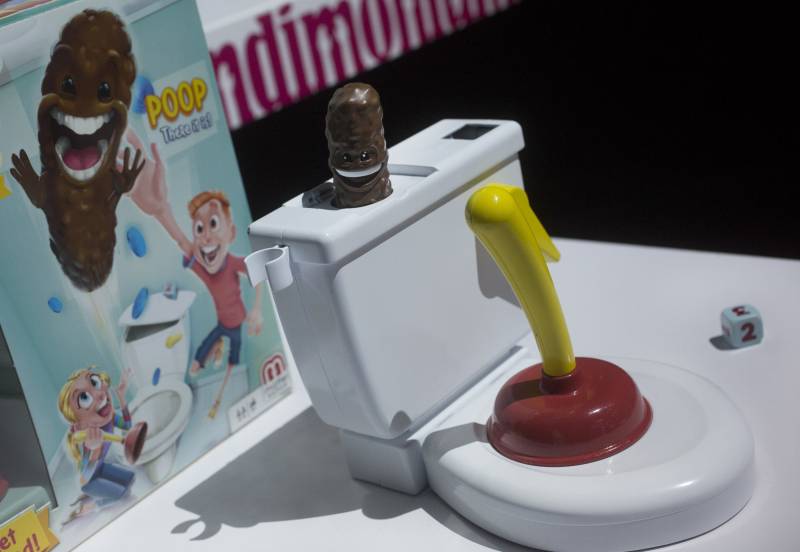For her Ph.D. in art education, Livingston wrote a dissertation called The Gooey, the Bloody and the Just Plain Gross. So her discourse upon toys that poop is uncommonly elevated, with references to such French philosophers as Julia Kristeva and Georges Bataille. “Toys teach us to manage our disgust,” Livingston explains. “They help us understand who we are. Poop is part of you, but it’s not. It’s something that’s transformed inside of you, and that’s fascinating. It’s a sign of a well-regulated system, but it’s gross.”
“It’s a very light taboo,” agrees Mary Higbe, the good-humored director of marketing for Goliath Games, the third largest toy manufacturer in the U.S. One of its top sellers is a game called Doggie Doo. Higbe is quick to point out its prosocial messages of good citizenship.
“You have a farting, pooping dog,” she concedes. “But you’ve also got the lessons learned because you have to clean up after the dog.”
This trend may have something to do with the proliferation of children’s books such as Everyone Poops and the “Captain Underpants” series, as well as the popular poop emoji. Not only can you buy any number of poop emoji toys and wearables for the special children in your life, there’s poop emoji air freshener and poop emoji wine for adults.) In 2017’s The Emoji Movie, the poop emoji character was voiced by Sir Patrick Stewart.
More evidence of civilization’s decline? Jack Reynolds in Denver would beg to differ. For him, poop emojis provide an opportunity for ontological reflection. “I think poop emojis poop out poop emojis,” he says. “And that just keeps going on forever.”
Even toys that poop, it seems, can be flush with meaning.
Copyright 2020 NPR. To see more, visit NPR.9(MDAxOTAwOTE4MDEyMTkxMDAzNjczZDljZA004))

9(MDAxOTAwOTE4MDEyMTkxMDAzNjczZDljZA004))

